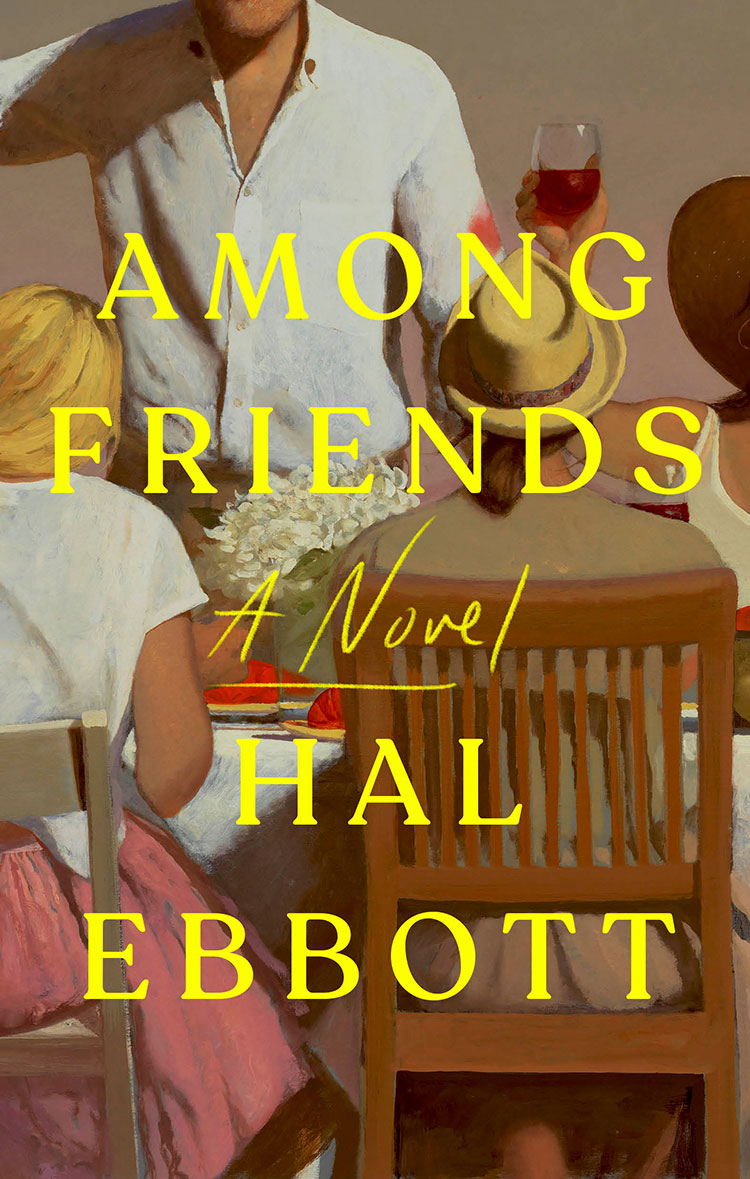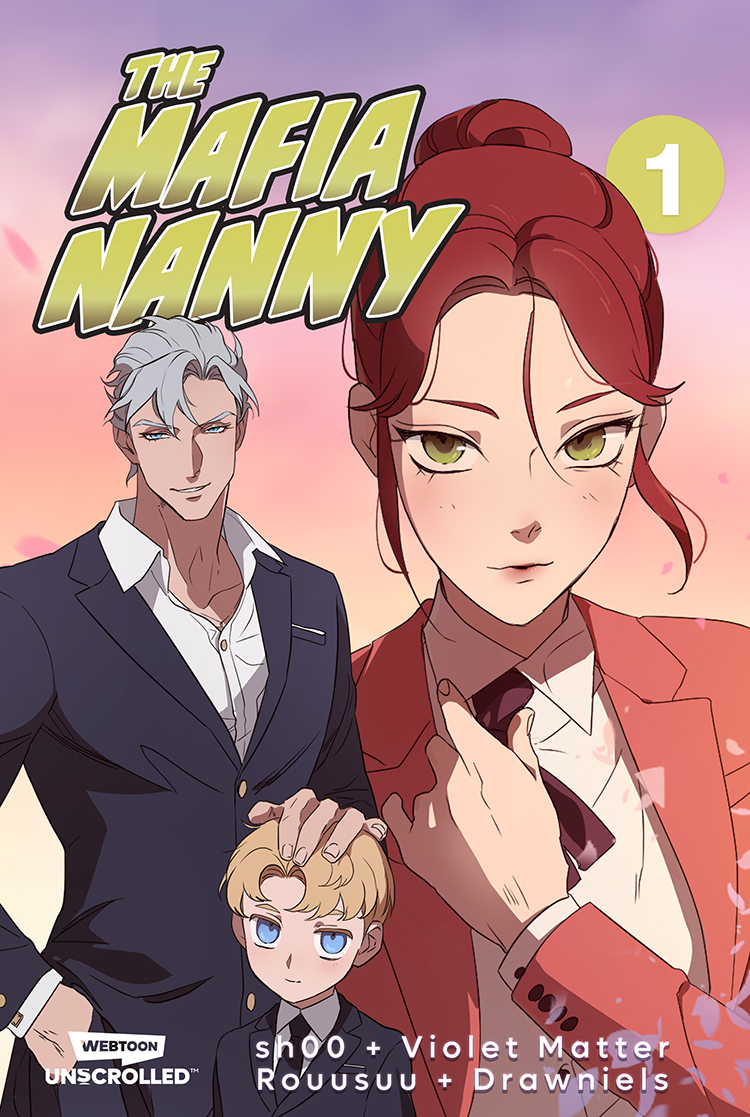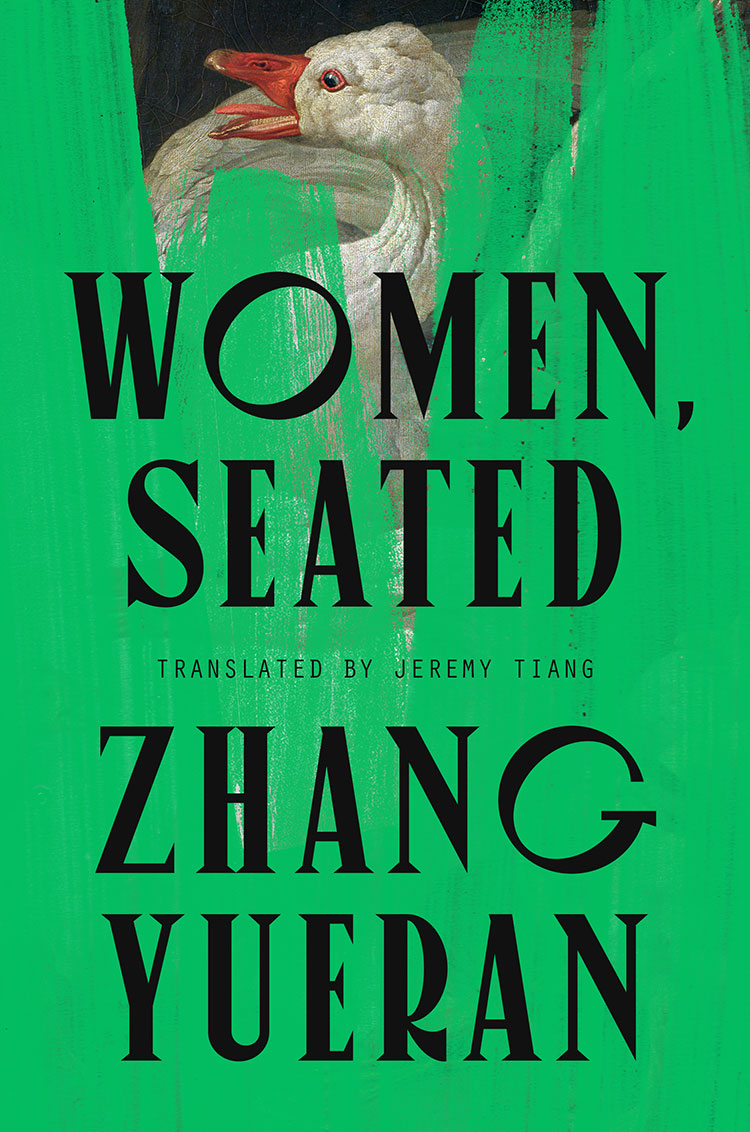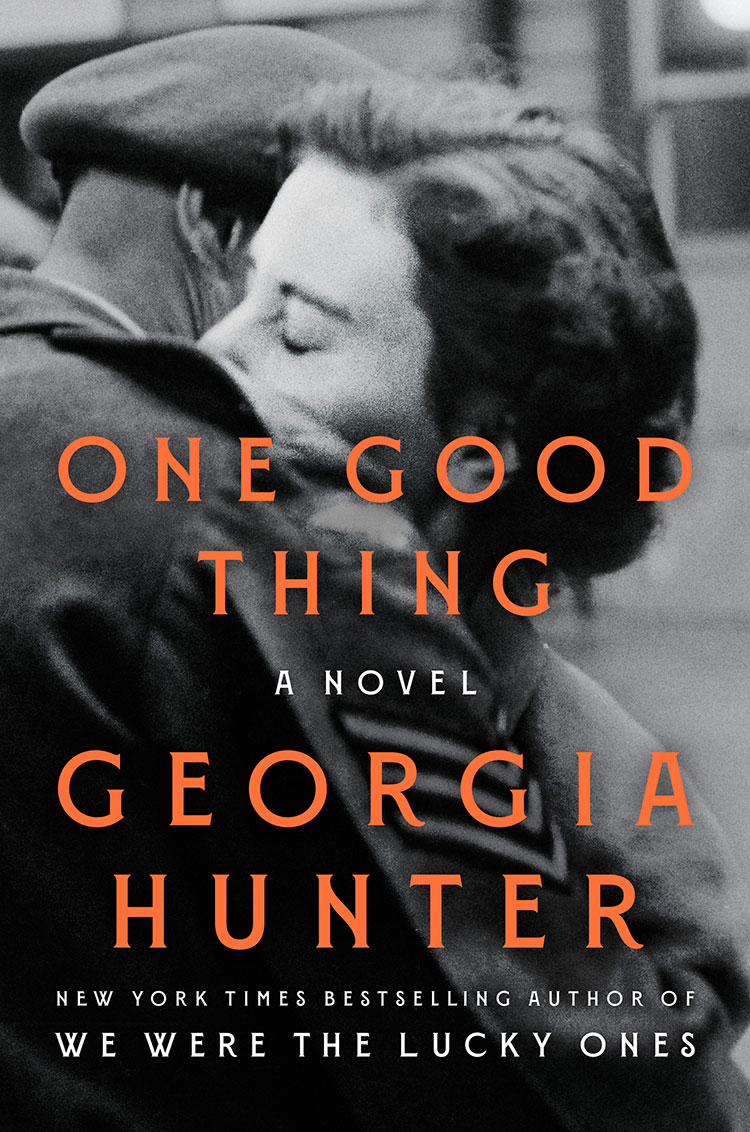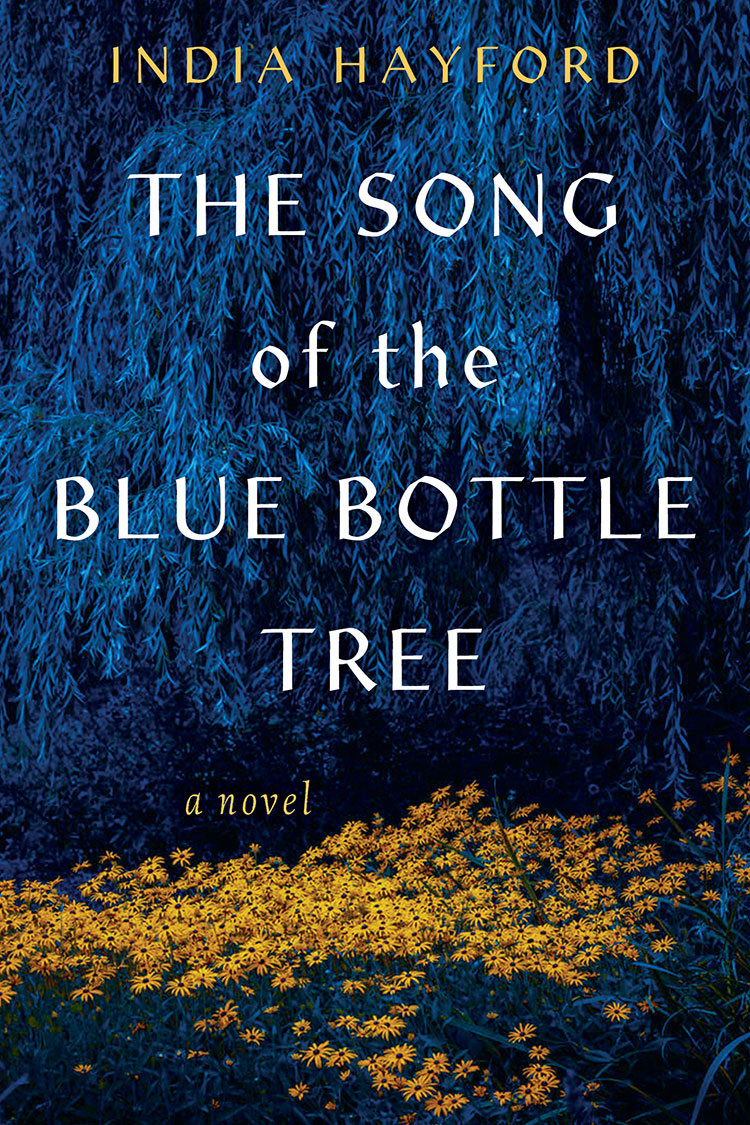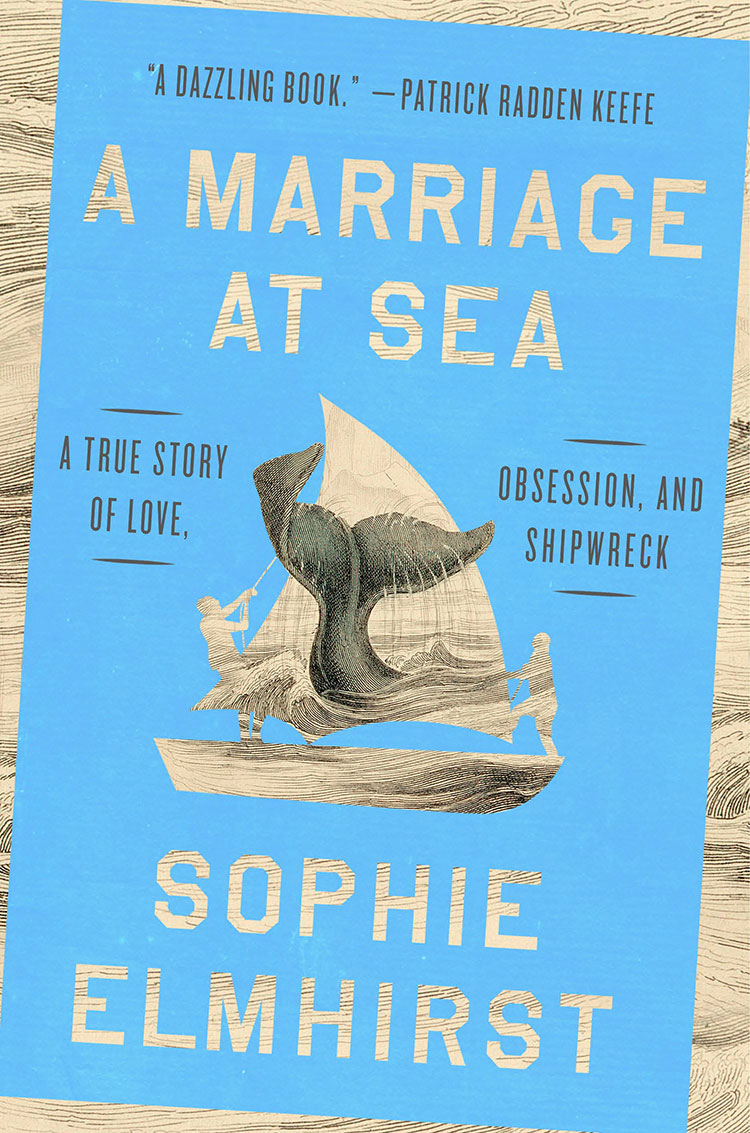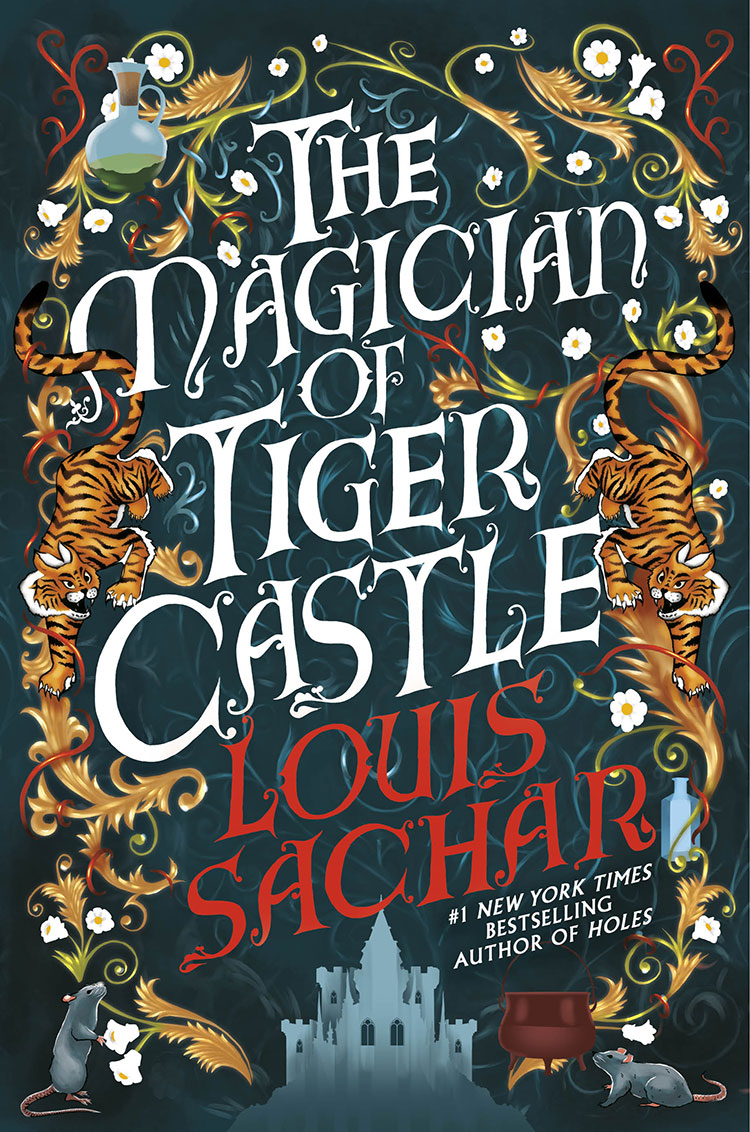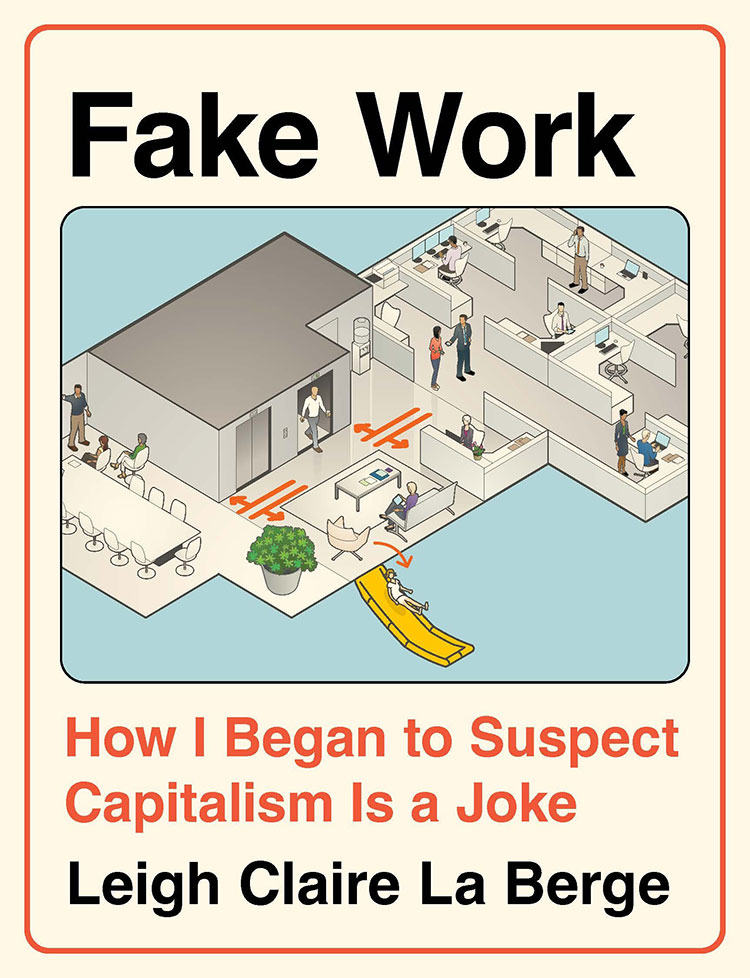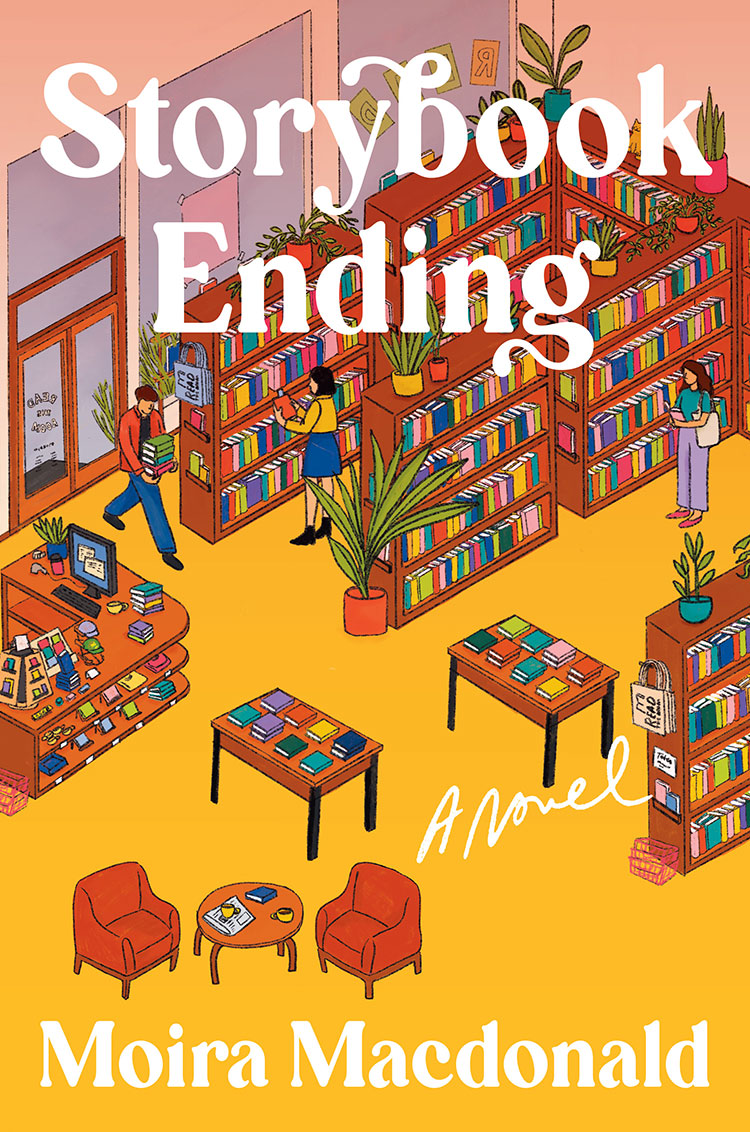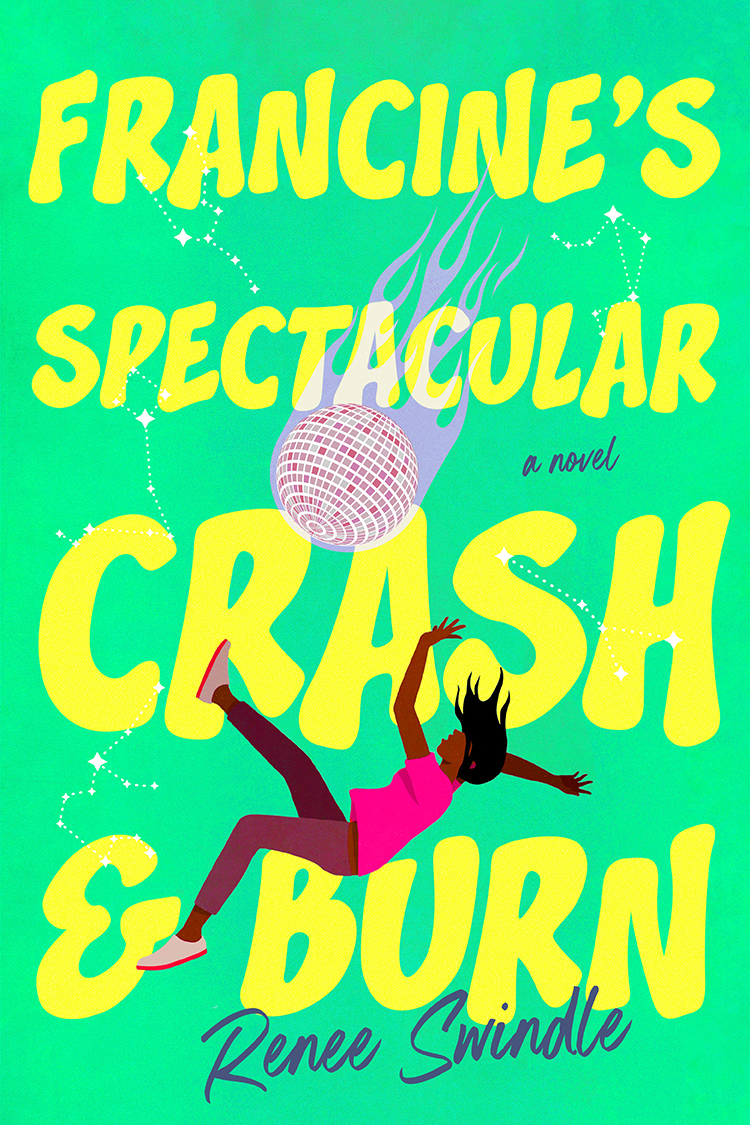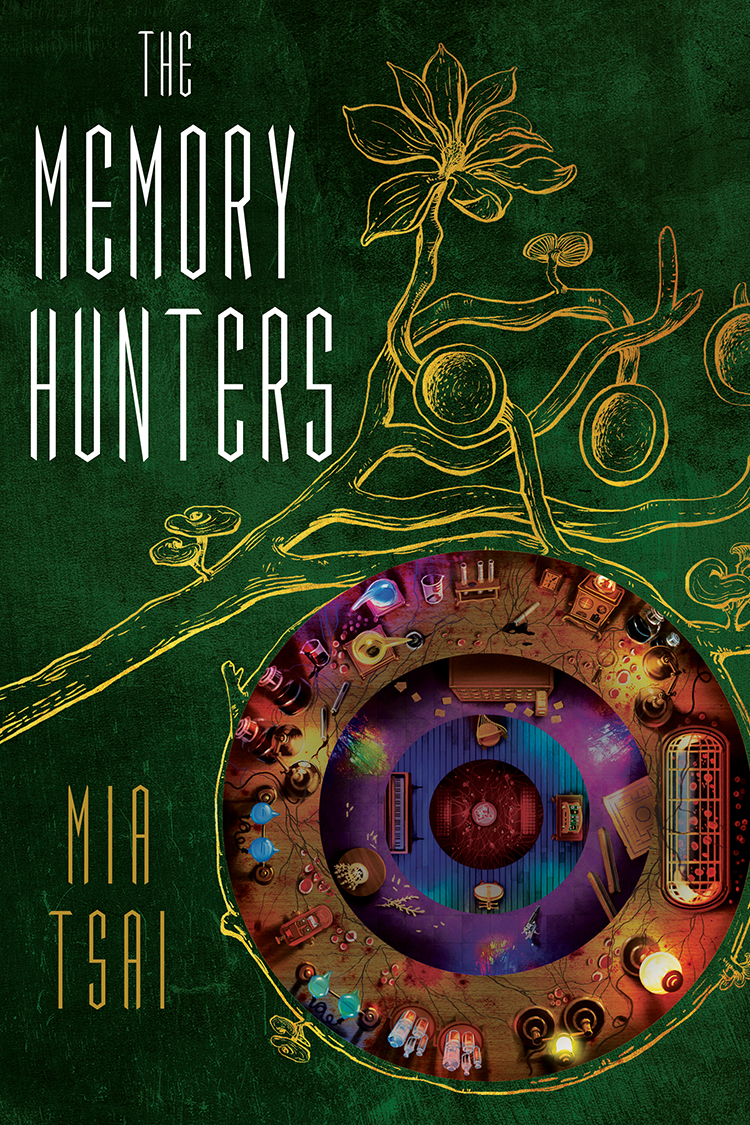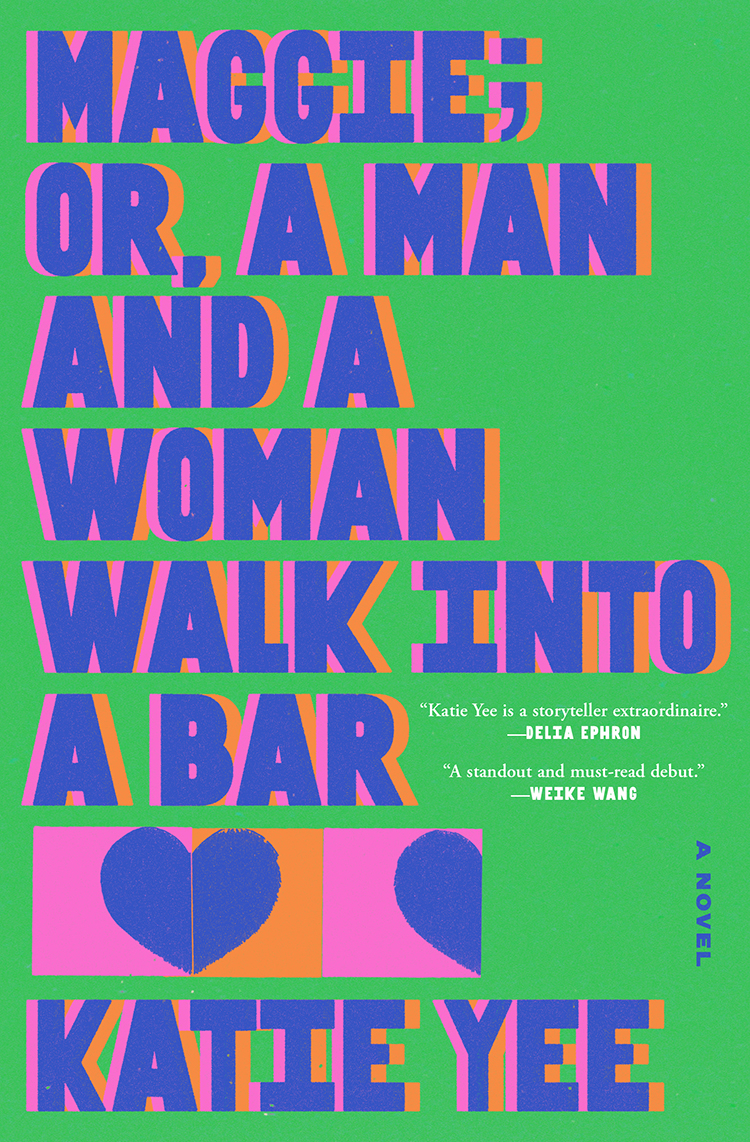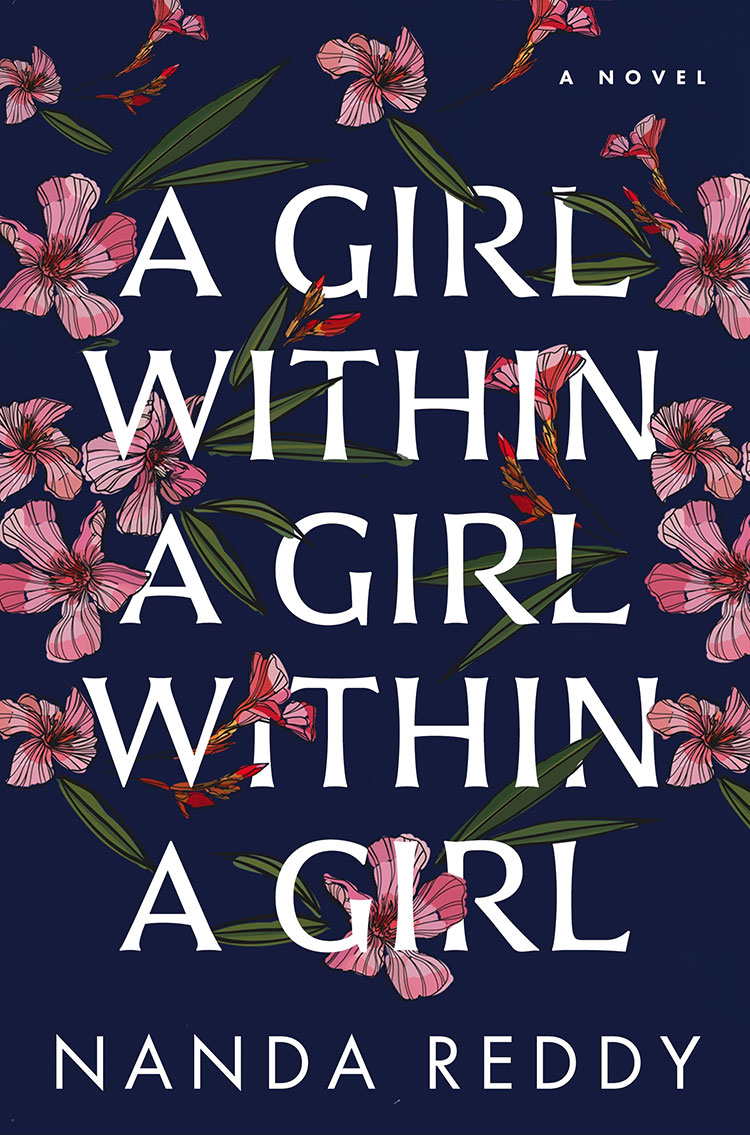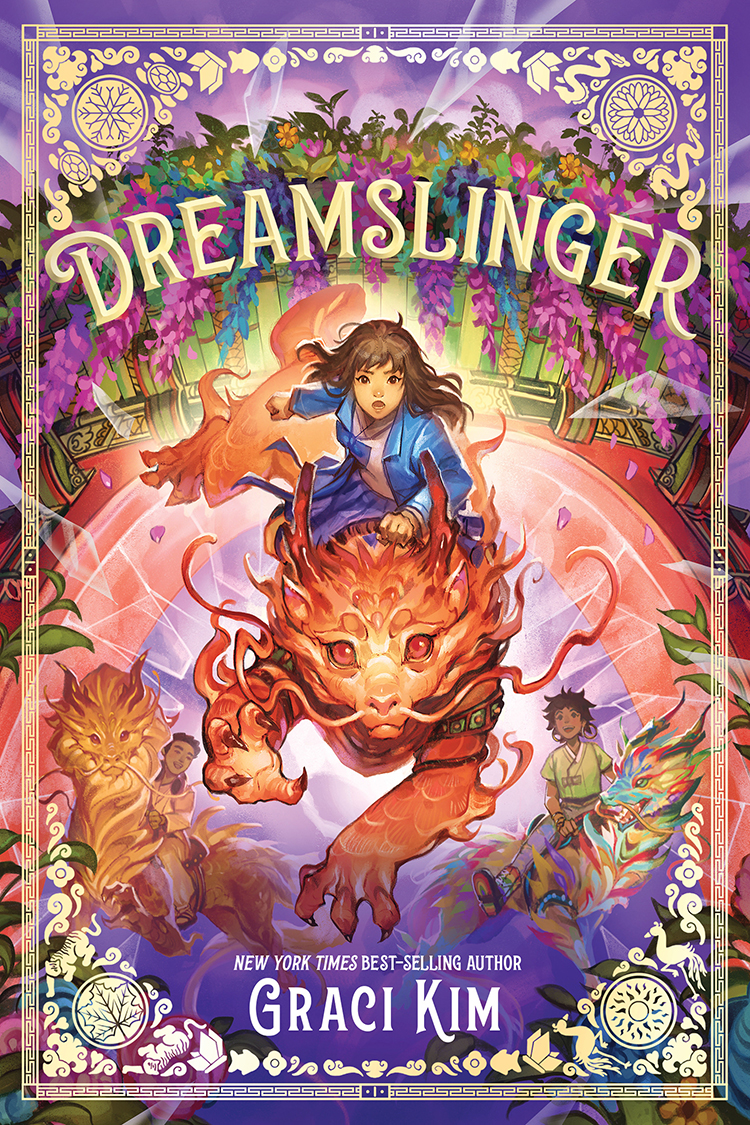
Lacy Eye
Pub: March 10, 2015
Pre-OrderHanna and Joe could never have suspected that the happiness of their youngest daughter, Dawn, would lead to the shattering of their lives. When Dawn brings her new boyfriend Rud around, the family tempers their unsettled feelings because they’re glad that Dawn, always an awkward child, seems to have blossomed. But when Hanna and Joe are savagely beaten with a croquet mallet, Rud is the suspect. Joe dies and Hanna, who survives, begins to inhabit a world of coping, denial, regret, and wistful remembrance of her family—Dawn and Iris’ sibling rivalry, Joe’s protective stability, and a teacher’s haunting statement, “It just seems like there’s something missing,” and if that means Dawn could have helped Rud murder her father. When Rud is granted an appeal, and eerily, Dawn returns to the family home, Hanna decides to try to remember that traumatic night so she can testify in the retrial and keep her husband’s murderer in jail. When her memories resurface, Hanna must finally confront the reality of who Dawn has become.
Are You Looking at Me or Not?
The detective was waiting for me when I arrived home from work. He sat in his own Civic, rather than an official police car, on the side of the driveway where Joe used to park. He might have been doing a crossword; I saw him lay down a folded section of the newspaper when I pulled in beside him.
I swore, not at the sight of Thornburgh, but because reporters from TV news vans were also waiting for me, on the street in front of the house. They ran up the driveway with cameras as I parked in the garage and stepped out of my car, but when I held my hand over my face and said that I was sorry but I couldn’t talk to them, the detective moved forward and told them in his reasonable but no-nonsense voice that they needed to get off my property.
Then he turned to me and nodded, a variation on an old-fashioned bow. I’d always been grateful for that quality in him, his politeness, the way he treated me with respect back then and didn’t—like so many of them—seem to believe that I must have brought what happened to me upon myself. Although Dawn had never been indicted, I knew that a lot of people who’d never even met me thought I was a terrible mother.
He wore civilian clothes: neatly pressed pants and a turtleneck under a windbreaker. The crease in his pants reminded me of the care my husband had always taken with his own appearance, and I felt a quick jolt, grief and pleasure together, thinking about Joe and the things I loved about him.
What I knew about Kenneth Thornburgh, besides the fact of his kindness, was that he had moved to the Albany area three years earlier—just before Joe died—from a small town across the border in Massachusetts where he had been unable to solve the murder of a fifteen-year-old girl. He saw this as his own personal failure, if you could believe the conclusions drawn by Cecilia Baugh in the feature story she wrote for the local weekly, The Everton Eagle, shortly after Thornburgh joined the force. He lived alone in the new condo development across town. After our trial, he suffered a mild heart attack, and since then he did not go out on active calls anymore. Instead, he ran investigations from behind his desk.
“Mrs. Schutt,” he told me as we walked toward my back door together, “I’m sorry to bother you.” He was the only one of his staff who didn’t call me by my first name from the very beginning, from that morning they’d come in to find Joe dead on the stairs and me, with barely a pulse, beaten and bloody across our bed. In the way that matters most, they saved my life, but in another way they destroyed it with the questions they asked before the ambulance rushed me away.
Thornburgh was one of the few people who could look at my face without wincing. The surgeons had done their best, but the scars were obvious, and my features looked as if they’d been pulled apart and rearranged, like a Picasso painting. Maybe in a museum a distorted face is a symbol, but it’s become all too clear to me that nobody appreciates encountering one on the street. No symbolism there—it means your face has been bashed in.
My hair had grown back since they shaved it for my brain surgery. When I was young I hid behind my bangs out of a shyness that felt paralyzing sometimes, but as an adult with facial injuries I had a better reason to let my hair fall over my bad eye— the one with the sagging lid they hadn’t been able to fix—and the cheek on the same side, the right, which remained slightly uneven, the skin buckled despite reconstruction of the bone. On good days I could almost forget what I looked like, but every time I went out in public, the stares and whispers reminded me.
There was one blessing in it, if you could call it that. For the first time, I understood what Dawn must have felt like as a child, when other kids either leaned in to get a closer look at her lazy eye or turned away because—as Iris would have said back then— it freaked them out. How many times had Dawn come home crying because some classmate had called her a name or, probably not even meaning to be cruel, asked her in frustration, “Are you looking at me or not?”
In the garage I told Thornburgh it was fine, this was not a bad time, and asked if he wanted to come in. In fact, I was glad for the company, however brief it would be. All I had to look forward to was another Friday evening ahead of me with no plans, except to eat a microwave dinner in front of the TV with the dog stretched out beside me on the couch. Besides, I knew from experience how stressful it was to face reporters alone.
I gestured at the door with my chin because I was carrying a potted ficus, which somebody at the office had given up on and put out with the trash. When my friend Francine, the receptionist, saw me pick up the plant on my way out to my car and I told her I was going to take it home, she warned me that it was too far gone. But this only made me more determined to nurse it back to life.
The detective said no thanks to coming in, it wouldn’t take a minute, and then he looked down at his shoes before he continued, covering his mouth with his fist as he cleared his throat, a habit I’d become familiar with during the trial. “I wanted to make sure you heard,” he said. “About the appeal?”
“Appeal?” My arms went slack, and he stepped forward to take the plant from me.
“You’re not going to tell me you didn’t know this was up before the court today, are you?” He pointed his thumb at the news trucks. “What do you think they’re doing here?”
I shrugged, feeling my shoulders shake. “I tried not to pay attention.” I didn’t say that I’d purposely left the radio off in my car on the way home—afraid of what it might tell me—precisely because I did know what was going on.
Thornburgh said, “Well, you’d have to find out sooner or later. The court granted Petty’s appeal for a new trial.”
I had not heard the name Petty spoken aloud in months. The sound of it made a ripple rise up the back of my neck.
I put a hand on the car hood to steady myself. “Did they grant it based on the dying declaration?” It always seemed wrong to me that it could be called that, when I hadn’t actually died afterward. But it had been explained to me that this was the law.
Thornburgh said, “It was more of the Sixth Amendment thing. The fact that the defense couldn’t cross-examine you during the trial, because you didn’t remember.”
I rubbed my forehead as jolts of pain darted behind my eyes. “He’s not going to get out on bail, is he?”
“Oh, no. Absolutely not. No way would they give bail for a crime like this.” He squinted in his rush to reassure me, and with a thud of dread in my gut I could tell what was coming next. “But Mrs. Schutt—Hanna—we want to put him away again as much as you do. Well, I shouldn’t say that. Of course you want it more.” He coughed gently.
“Who is ‘we’?” I said, though I already knew.
“The police, and Gail Nazarian. She’s worried he might walk this time, unless they can get a direct eyewitness to what happened.”
At the prosecutor’s name, my temples folded in on themselves in a full-blown throb. This had been happening more and more lately, and I knew I’d have to mention it to my neurologist during my next checkup. Quietly, to subdue the noise in my head, I told Thornburgh what I’d told him every other time before. “I don’t know anything more than what I’ve said already. I can’t remember that night.”
It seemed again that he didn’t believe me, and for a moment I thought he might say so. Then I remembered that this was more Gail Nazarian’s style, not the detective’s. “I’m sorry,” he said, and he did look sorry. It was an expression I’d seen often during the trial, especially when he had to testify about what he’d seen in our bedroom that morning three years earlier, when my friend Claire called the police after looking through our front window and seeing Joe lying on the stairwell in his own blood.
At the sound of children shouting, Thornburgh looked down the block to a yard near the corner where the Osborne girls, Portia and Rosamund—who were young enough that they didn’t even seem to notice the media chaos on their street—chanted an old camp song as they took turns jumping into a huge leaf pile I’d watched their father rake for them the day before. The detective smiled slightly as he handed me the ficus and turned to leave.
“Is there anything you can do to get them out of here?” I asked, meaning the reporters.
“They’re allowed to be in the street,” he told me, which I already knew. “The only way to get rid of them is if you go down and give them something they can use.” When I hesitated, he added, “Want me to come with?” The childlike phrase made me smile, and I said yes before fear let me change my mind. I set the plant on my car and began to follow him toward the curb.
Before we could reach the reporters, my next-door neighbor Pam Furth approached from where she’d been watching everything on the strip of grass between our driveways.
“Anything I can do, Hanna?” she asked, feigning all care and concern. I knew this was for Kenneth Thornburgh’s benefit, because everyone knew he was a bachelor and Pam, whose husband had divorced her, made no secret of the fact that she was always on the lookout for a new husband.
I didn’t bother to answer her.
As Thornburgh and I approached the street, the reporters began to close in. At the front of the pack I saw Cecilia Baugh, whose face was twisted into an expression calculated to remind me of our past connection, and that she was the one closest to home on my story, since the house she grew up in was just around the block. I looked away from her. Questions were yelled from every direction, all on the order of “How does it feel to hear that Rud Petty will get a new trial?”
“I don’t have any comment, except to say I’m confident he’ll be convicted again.” I spoke slowly, forming each word in my head before I said it.
“Would you mind repeating that, only louder?” someone shouted from the back.
Meeting my eyes and seeing that I was finished, Thornburgh told them, “Give Mrs. Schutt some breathing room, please,” and motioned for me to walk back up toward the house. “I’ll be in touch,” I heard him say under his breath, so only I could hear. “Take care of yourself, okay?”
His words were more than a formality, I knew. I could sense how much lay behind his wish for me—Take care of yourself—and I would have liked to show him that I felt it, but it didn’t seem like something I could afford. All I managed was “Thank you,” and I watched him get back in his car and pull out of the driveway, giving me a gesture that was either a peace sign or half of a wave. I remembered how he’d reached for my hand in the hospital, the first time he came to talk to me there. He’d touched my fingers with the merest hint of a squeeze, which I took to be reassurance and comfort, until he cleared his throat and started asking me to repeat the statements I’d made when he discovered me in our ravaged bed, next to the croquet mallet that had killed my husband and just about killed me.
Before I brought my plant inside, I paused for a moment to listen to the song the Osborne sisters were singing as they climbed to the top of their picnic table, jumped off into the leaves, and scrambled up again. It was a song my older daughter, Iris, had learned years ago at the YMCA day camp we used to send her to, instead of the fancy sleep away ones—horses, soccer, dramatic arts—her friends attended. We offered to send Dawn to the camp too, but she said she’d rather stay home. Which I let her do, even though Joe believed we needed to push her sometimes. “She needs to get out in the sun,” he said. “She’s too pale.” He was right. Once, a new student in her eighth-grade class asked Dawn if she was an albino.
Apples, peaches, pumpkin pie—those bones gonna rise again! Who’s not ready? Holler aye! Those bones gonna rise again. When I was a child I learned the lyrics as “dem bones,” but of course that wasn’t acceptable anymore, at least in a town like Everton. I wanted to wave at the girls, even though I knew they wouldn’t see it from such a distance. Besides, I knew my house was off-limits to the children who’d moved to the neighborhood in the past few years. Though I tried to ignore it, I knew some people called it the Lizzie Borden House.
And even when I was out walking the dog, the kids avoided me, probably in large part because of the way I looked. Maybe their parents had told them to stay away. It still stung, but I was used to it by now. This Halloween, the same as the last two years, I knew I’d end up with as much candy left in the bowl as I started out with.
In the old days, entering the house through the garage, I would have used my key to get inside, then pushed the buttons on the alarm system to disable it when I entered. I would have taken my shoes off by the back door before stepping into the kitchen. When Abby greeted me with her usual tilted-up, black-snouted sniff-kiss and the expression that meant What are we having for dinner? I would have measured out her food with a cup from the storage tin in its place under the sink. Then I would have picked up the mail and stacked it in order of importance, bills on top. Living with an accountant had taught me to be organized, to think in terms of “systems” for everything in the house. Though it wasn’t my nature, I learned from the beginning of my marriage to sort, check, anticipate, and plan, and it became clear to me quickly why Joe liked to live that way; it made me believe I had control over my life.
But now I didn’t bother with systems anymore. I just poured Abby’s food into her bowl, letting some spill over, and went upstairs to change my clothes, tossing my blouse in the direction of the hamper. After putting on my jeans and an old sweatshirt that had belonged to some boyfriend of Iris’s, I clipped on Abby’s leash and patted her flank the way she liked it. It was better for both of us if I walked her before night fell completely, because we were both afraid of the dark. At the window, I pushed a corner of the curtain aside and saw that Thornburgh had been right. After filming my flimsy quote for their newscasts, the reporters had all gone to file their stories.
Our town was the kind Joe never thought he’d move to. His family had been what he called “blue-collar Buffalo” for three generations before him, and even though he was proud to have left the bad parts of his heritage behind—his father’s drinking and sarcasm, the dependence on food stamps when his father got fired, hand-me-downs that had already been through two cousins before him—he was also committed to not straying too far from his roots. For a year after we were married we lived in an apartment in Albany, but then Joe surprised me by saying he thought we should start looking for a house, and he named a few of the better suburbs. When I asked why, he said it was because of the schools. “They’re better out here,” he said, as we drove around Everton checking out For Sale and Open House signs. I wasn’t even thinking of being a mother yet, but as it turned out, with Iris being born the following year, he was right to settle us into the four-bedroom Colonial at 17 Wildwood Lane.
The houses on our street lay in a staggered pattern across from each other, and Wildwood ended in a cul-de-sac bordering the conservation land known as Two Rivers. This was where my friend Claire and I had always met for our walks on Saturday mornings before that Thanksgiving weekend three years earlier, and where I still took Abby for her exercise twice a day. As the dog and I stepped out the back door and through the garage after Thornburgh and the reporters left, she headed automatically in that direction.
There was no denying it anymore—it was starting to get cold. We hadn’t turned the clocks back yet, and technically the sun was still out, but the air held that distinct winter’s-on-its-way feel. I was halfway down the block, pulling the hood of the sweatshirt over my ears, when I heard somebody’s front door open behind me. I shut my eyes for a moment because I knew what was coming, and I hadn’t decided yet how I wanted to feel about it.
Sure enough, Warren Goldman called my name in a low voice, then ran to catch up with me. He hadn’t had time to put on sneakers, but came out instead in his moccasin slippers, the soles slapping softly on the sidewalk.
“Hanna,” he breathed, trying not to give away that the short sprint had winded him. He needed a haircut; little wings lifted away from his neck in the nippy breeze. He hadn’t bothered to grab a jacket, and I could see goose bumps rising on his arms, which were bare beneath their tee-shirt sleeves. The shirt, faded and stretched over his stomach, said this is what a feminist looks like. Reading it I smiled to myself, remembering the party he and his wife Maxine had thrown in celebration of Hillary Clinton’s election to the Senate. Joe hadn’t wanted to go, saying he wasn’t a big fan of the Clintons, but I knew his resistance had more to do with the fact that parties made him uncomfortable, and he hated small talk. I let him think I believed his reason for declining, but I liked Hillary and didn’t mind small talk, so I said I was just going over to show my face at the party to be polite, and then I didn’t get home until midnight.
I reminded Warren of that party now, and he smiled. “That was a good one,” he said. His face sobered. “Remember Maxine got out her guitar?”
I felt guilty, even though I hadn’t intended to cause him a painful memory. Warren reached down to scratch Abby behind the ears. Then he straightened quickly, giving out a mild exclamation at the sudden movement and putting a hand on his back, imitating an old man. “I’ve been meaning to ask you. Do you have plans for Thanksgiving? I was going to invite you over, if you didn’t. Our son and his wife are coming.” Ever since Maxine died, two years before Joe, Warren had referred to his wife as if she were still alive. Joe considered it creepy, and I knew other people did too, but I thought it was sweet. I thought it was touching that he honored her memory this way, even though he must have realized it sounded odd.
“I thought I’d try the ‘Small and sophisticated’ dinner from Bon Appétit,” he added. “Celery bisque, turkey breast roulade, and pumpkin mousse.” He looked at me hopefully, as if he’d been afraid I might turn him down but would change my mind once I heard the menu.
Warren had taken up cooking after Maxine’s death. He routinely invited people from the neighborhood to eat with him, and sometimes he brought meals to other people’s houses. The sight of the rumpled man in the rumpled clothes carrying a casserole dish was a familiar one on our street. Joe and I had eaten with him a few times, and after I came home from rehab, Warren had more than once suggested our sharing a meal. I knew he figured it was only natural that two widowed people should do so, but I usually found some excuse to say no.
It had been almost a year since he’d asked, and because I’d been trying to forget how soon Thanksgiving was, his invitation took me aback. I coughed, stalling, trying to figure out how to respond. “I’m not sure,” I managed to stammer, as Abby started to whine on the sidewalk between us. I recognized that my answer was what the kids would call “lame,” but I couldn’t think how to improve it. Just the word Thanksgiving was enough to give me chills. That and the fact that I’d wondered, over the past couple of years, whether the conversations Warren always initiated— when we were both outside getting mail from our boxes, or unloading groceries—were an effort to, as the kids would say, “hit on me.” I couldn’t quite bring myself to believe this was the case, because, well, why would he? I’d never been pretty to begin with, and since the attack, I was even less so. I wasn’t particularly smart or accomplished, and I didn’t have an impressive or lucrative job. Not to mention what had happened in our house three years earlier. Unless Warren was one of those people who got turned on by catastrophe, what could he possibly see in me?
And even if he could see something, did I want him to?
“I’ll let you guys go,” he said, nodding at Abby, who was straining against the leash. “Will you think about it, Hanna? You don’t have to give me any notice—we’ll be here either way.” He put his hand out to touch my arm in good-bye, but I pretended I didn’t feel it and turned away.
After our usual loop of the brook at Two Rivers, Abby trotted me back toward home. But halfway down the street she paused, making the low growl in her throat that meant she was scared of something. “It’s okay, girl,” I told her, trying to sound convincing even though I had no way of knowing if it was really okay or not. Then we heard the familiar sound of Emmett Furth’s motorcycle revving up in his driveway, and he sped past the dog and me, coming so close we could feel the wind and hear him whoop as he rushed by us.
“Goddammit,” I breathed as he moved down the street, but it must have come out louder than I thought, because Pam, his mother, heard me from the curb where she had dragged out her trash barrel.
“You know he can’t help it, Hanna,” she chided me.
She’d been saying this for years, that Emmett couldn’t help it. When he was an eight-year-old getting into trouble for kinking people’s sprinkler hoses and chasing cats up trees, all of us on the block tried to buy Pam’s explanation that Emmett had an “auditory processing problem,” which was the source of all his troublemaking.
But as he grew older, we became more and more aware that he just chose not to listen to people, including his mother, when they were telling him what not to do. And he couldn’t have cared less whether he ruined your yard or terrorized your pet or caused water to back up into your basement. In fact, he always seemed happier leaving destruction in his wake. This was why some people seemed to believe that Emmett, and not Rud Petty, had been responsible for the attack on Joe and me.
I used to talk back to Pam, and let her know when I was angry about her son tormenting Dawn or charging on his bicycle through my garden. But after he set fire to our tree house when he was in tenth grade, I became afraid of him.
During the trial, when Rud’s lawyer proposed Emmett as a possible alternative perpetrator, he cited the fact that Joe had refused to provide a reference for Emmett after he graduated from high school the same year as Dawn and, instead of going on to college, applied for a job at Home Depot. I remember telling Joe he should just go ahead and do it, for the sake of peace with the neighbors. He didn’t have to make Emmett sound like a saint, but couldn’t he just say the kid would probably show up on time and not make any trouble? It had been three years since the tree house, I reminded him. Didn’t he deserve a second chance?
When I suggested this, Joe said, “He burned down our property, Hanna. Do you realize how easily that fire could have spread to our house? If I’d had my way, we would have pressed charges. What possible reason would I have to recommend him for a job?” I quit trying to persuade him, because he was right.
The jury didn’t buy the notion of Emmett as a possible culprit, probably because the defense also suggested that Joe might have been targeted by someone associated with Marc Sedgwick, the former superintendent of schools over in Shelby Falls, whom Joe had helped expose for embezzlement and whose case was scheduled to go to trial a few months after Joe got killed. The defense had no evidence of this, and everyone could tell it was just a Hail Mary pass attempting to put doubt in the minds of the jurors. According to Gail Nazarian, Rud Petty’s legal team “royally fucked up” by floating both scenarios as possible motives for Joe’s murder. She said, “Emmett Furth probably tipped the scales. Without him, we might have ended up with a hung jury.”
Though I knew it was silly, I almost felt I owed Emmett a favor for contributing in this dubious way to the fact that there had been a conviction in my husband’s death. So when Pam told me now that her son couldn’t help it, I only waved at her, and gave her a nod excusing Emmett again, as she turned away from her trash cans and I followed Abby back to our door. I’d fed her but not myself yet, so I settled down in front of the TV to eat a dinner I hadn’t had the patience to heat properly in the microwave.
I wasn’t nearly as particular about what I ate, after Joe died, as I was when he was alive. After certain things have happened to you, you start to feel as if it doesn’t make any difference. No matter how much you want to believe what they tell you, you realize you can’t really keep yourself safe.
The news was about to come on—pirates, suicide bombs, drunk drivers, and stocks going down the drain. Before I could hit the Mute button, I heard the teaser to the top local story: “New trial on tap for so-called Croquet Killer.” Even though I warned myself not to, I found myself peering at the screen, squinting to distort the image a little, when Rud Petty’s photograph came on.
How was it possible that after all he’d done to destroy me and my family, my instinct at seeing his picture was to think That’s a good-looking man?
And could I really blame my daughter, who was so much younger than I, who considered herself ugly and who’d had no romantic experience before him, for wanting to believe that he was in love with her?
After finishing the tepid mess its package called a stroganoff, I picked up the phone to listen to my messages, already knowing, because of what Thornburgh had told me, that at least one of them would be from Gail Nazarian. And there it was, along with requests from still more reporters. I ignored those, and was jotting myself a note to call the prosecutor back (maybe the following week, after I’d figured out how to say, once again, that I couldn’t help her), when I heard a rap at the back door and saw her standing there, peering at me through the pane. It was too late to hide and pretend I wasn’t home. I had no choice but to go over and let her in.
“Ow, shit!” she said, reacting as the door I held open gave off a static spark. She shook her hand a little and added, “I know you don’t want to see me.” In her other arm she clutched a leather briefcase to her side so tightly it might have been a tourniquet preventing her from bleeding all over my floor. “I came by because I thought you might hang up on me if I just called.” She tried to say it in a joking way, but humor was not one of her strengths.
I resisted the temptation to tell her she was right. Once she’d failed in her effort to persuade the grand jury to indict Dawn in the attack against Joe and me, I tried to warm up to her because she was working to send Rud Petty away. But I couldn’t, mainly because I knew Gail believed Dawn was guilty. She did everything she could to get her bound over for trial, but there wasn’t any physical evidence against Dawn, and she had an alibi.
I tried to make my voice light, so she could take what I said as a joke, too, if she wanted. “Don’t you have anything better to do on a Friday night than harass crime victims?”
“Sorry,” she said, sweeping past me into the kitchen, but of course she was not sorry at all. “You really should give me your cell phone number. I might need to get in touch with you immediately sometime, like I did today.”
“I don’t have a cell phone,” I told her. I knew she’d think I was lying, but I didn’t care.
Most of my friends just thought I was a technophobe. The truth was that I didn’t have a cell phone because I grew up with a father who flinched every time the phone rang in our house.
Later, after he was convicted of fraud and a few other “legal infelicities” (his lawyer’s words), I understood that this behavior was related to the fact that he lived in constant fear of being found out. Though all of that was a long time ago, I never got over the impulse to cringe at the sound of a ringing phone. So I stuck to my old-fashioned landline at home and used caller ID to screen any calls that came in.
But I wasn’t about to explain any of this to Gail Nazarian. “I know why you’re here,” I continued. “Ken Thornburgh just came by to tell me about the appeal.”
“I was surprised you weren’t there in the courtroom to hear it yourself.” Though Abby was sniffing at the hem of her brown skirt, the prosecutor didn’t reach down to pet her. Gail Nazarian had always looked like my idea of a female lieutenant, with her severe style of dress—always the same cut of dark-colored suit— and the way she didn’t let her hair, which I noticed had grayed somewhat since the end of Rud Petty’s trial, wave around her face as it wanted to. She was short and plump, with stubby limbs and a lean in her walk that made me think one leg might be longer than the other. Her eyes appeared black, and they moved in her face the way a bird’s eyes move, darting sharply to both sides above a beak poised to sense the slightest threat at any distance.
“I didn’t have any reason to be there,” I said to Gail. “You don’t care that he got a new trial?” “Of course I care. It’s just that I knew I’d find out sooner or later which way it went,. The last thing I wanted was to be in the same room with him again.” I scooped some more food into the dish for Abby and felt happy, as I always did, to see her eat with such appetite. For months after the attack, while I was recuperating in the hospital and she went to a foster home, she ate too little and lost too much weight. Now she was almost her old self again, give or take a few creaks that were part old age, part leftover trauma.
“Well, I came in person,” Gail told me, drawing out her enunciation as if she were speaking to a child, “and on a Friday night, to let you know that I have every intention of putting Rud Petty away again, this time for good.” She would have kept talking, but I held a hand up to interrupt.
“Just a minute. Can you tell me what happened in court?”
She sighed in the weary manner I became used to during the trial. If you had been there yourself, the sigh said, I wouldn’t have to explain it to you. “It was a little complex, in terms of the legalities. But basically, the judge ruled that because of the medical witnesses the defense put up, the nods shouldn’t have been let in.”
The Nods. It was a phrase coined by Cecilia Baugh, in that national crime tabloid she freelanced for, to describe in a kind of shorthand what happened when the police found me beaten in my bed that November morning. I had appeared to implicate both Rud Petty and my daughter when Ken Thornburgh questioned me, before the medics sped me away. My testimony about The Nods hadn’t been heard by Dawn’s grand jury, but the judge at Rud Petty’s trial allowed it under the “dying declaration” rule, which basically says that when you think you’re about to die, you have no reason to lie about who tried to kill you.
But now the appeals court said The Nods had to be thrown out and the trial started over, apparently because—since by the time the trial started, I couldn’t access my memory of that night— Rud’s lawyer hadn’t been able to question me about them.
My chest knew what the prosecutor was asking of me before she even spoke the question, and the knowledge squeezed my lungs to the point that my next few breaths came out in a pant. For three years, there had been no reason for me to try to remember the attack. Not that I had tried; to be honest, I didn’t want to remember. Who in her right mind would?
“I still can’t testify,” I told Gail. “I don’t have anything for you to use.”
She was silent for a moment, and I remembered the way she had, in the courtroom, often allowed herself to pause when she was questioning defense witnesses, not because she needed the extra time, but because it made them nervous; you could see it in their eyes. Even with her own witnesses—including the state police investigator who took the stand to confirm that our alarm system had been disabled by someone who knew the code and then smashed the keypad to make it look like a random break-in—she came off as somewhat hostile. When Warren Goldman testified for the prosecution that he’d gotten out of bed at two o’clock on the morning of the attack and thought he’d seen Dawn’s Nova parked in our driveway, he went on to explain that he’d had insomnia since his wife, Maxine, died. But Gail cut him off. “We’re only interested in what’s relevant,” she said.
In my kitchen she shifted from one foot to the other, and for some reason this simple movement triggered a feeling of dread. “I know you want to protect your daughter, Mrs. Schutt,” she murmured. “I get that. If I were a mother, I’m sure I’d do the same thing.”
“But I’m not ‘doing’ anything,” I told her.
She looked at me long and hard. I could tell she didn’t believe me. “There’s something else you should know.”
There it was, that chill to my neck again. I filed this in my mind as another thing to mention to the neurologist, although I guessed it wasn’t actually a physical symptom.
“They found a cell phone on Rud Petty,” she said. “He hadn’t made any calls yet, so they couldn’t track any numbers. But— well, like I said. I thought you should know.”
She wasn’t telling me this because she thought I cared what Rud Petty did with his time at the correctional facility in the northern part of the state. She wanted me to think that it was possible it had been Dawn he was trying to contact. “How did he get a phone?” I asked, to distract myself from the panic I felt gathering in my belly and threatening to break out. “I thought that wasn’t allowed.”
“It isn’t. But lots of things happen in jail that aren’t supposed to.”
“Well. It’s a good thing they found the phone, then.” She sighed again, this time so quietly I assumed she hadn’t meant for me to hear it. Then I watched her decide to take the plunge and come right out with what she was thinking. “You aren’t worried he might try to get in touch with your daughter?”
“He won’t,” I said, loud enough that I hoped I might persuade both of us. “She doesn’t want to hear from him. Anyway, even if he tried to, what difference would it make? He’s in jail.”
“You’re a fool if you think he can’t get you from there.”
I swallowed the urge to ask what she meant when she said he could “get” me. I didn’t say anything as I watched her face and tried to figure out how much she was thinking about her own reasons for wanting another conviction, and how much she was thinking about me and my safety. She asked, “Where is she, anyway?”
“I’m not sure.” This was true only in the sense that at that very moment, my daughter might have been inside her apartment in Santa Fe or out of it. But I didn’t have to tell Gail Nazarian that.
“If I find out you’re holding something back, I won’t be happy,” she said, this time making a point of pushing Abby’s snout away. “Look, I don’t actually need you to tell me where she is. My staff can find her. My staff could find the tooth fairy if they wanted to. But it would be better for everyone if you cooperated with us.”
“I am cooperating.” My hope was that if I spoke as calmly as possible, it would infuriate her into leaving. But no such luck.
“We need one of you on that stand,” she said. Then, after a dramatic pause for effect, she added, “Just keep in mind that we always have the option of trying again to indict Dawn.” She took a step back to watch what her words would do to me.
I tried not to let out the gasp I felt. “You can’t do that.”
“Of course I can. It’s not a question of double jeopardy—she never stood trial.”
“So,” I said, wondering even as I spoke whether I should continue, “you’re threatening me?”
She shrugged. “I wouldn’t call it that. Just passing on information. Letting you know what our options are.”
When I didn’t say anything further because my brain had gone on the blink, she thanked me in a tone that said the opposite of what her words did, and told me to call her, please, if something changed—if I remembered anything, anything, that might be of use. “The case might depend on it,” she said. Pointedly, she propped her business card against the salt shaker on the table. I had a half dozen identical cards scattered in my junk drawer.
I told myself she was exaggerating. I didn’t doubt for a minute that Rud Petty would be found guilty again, purely on the evidence that had been presented the first time around. He’d had a motive, he’d had access to the alarm code, his prints were on the weapon. They had a nearly perfect match from a shoe print in our bedroom to a shoe they found in his closet when they arrested him. I reminded myself that the prosecution didn’t need me, even if I could testify.
Gail Nazarian seemed to intuit what I was thinking, and she wasted no time in attempting to set me straight. “It’s all circumstantial,” she said. “They can explain everything away. You know that.” Her tone implied that she was sick of repeating herself. “The fact that he knew about the code and the key only means Dawn told him about them at some point—it doesn’t necessarily have to do with that night. His prints on the mallet could have been left over from the wedding. Even the shoe print isn’t a hundred percent—you saw how hard his lawyer worked to prove it could have come from a different pair.
“I watched the jurors when Thornburgh gave his testimony about you identifying Rud,” she went on. “I’m telling you, that’s what swung them. Without that—and we don’t have that now— I can’t make any promises.” She paused again to allow the weight of her words to sink in.
Since I didn’t have an answer for this, I said instead, “What makes you think I’d work as a witness, anyway? You know his lawyer will get experts to say my memory can’t be trusted.”
“Well, we’ll get experts who say it can.” She said it with enough confidence that I was tempted to believe her.
I asked when the retrial was likely to be, and she said she wasn’t sure. She’d need time to prepare the case, but Rud’s attorneys would push to have it start as soon as possible—late winter or early spring.
“But it’s over,” I said, recognizing how weak it sounded, my effort to convince myself.
“No,” she told me. “It isn’t.”
Then she was gone, still clutching her briefcase, which she’d never loosened her grip on during the whole time we spoke. I watched her get into her Volkswagen, and before turning the key she sagged in her seat, leaning back against the headrest. But she allowed herself only a moment’s break before sitting up and starting the car with a ferocious gun to the gas, as if there were something under the pedal she wanted to destroy.

